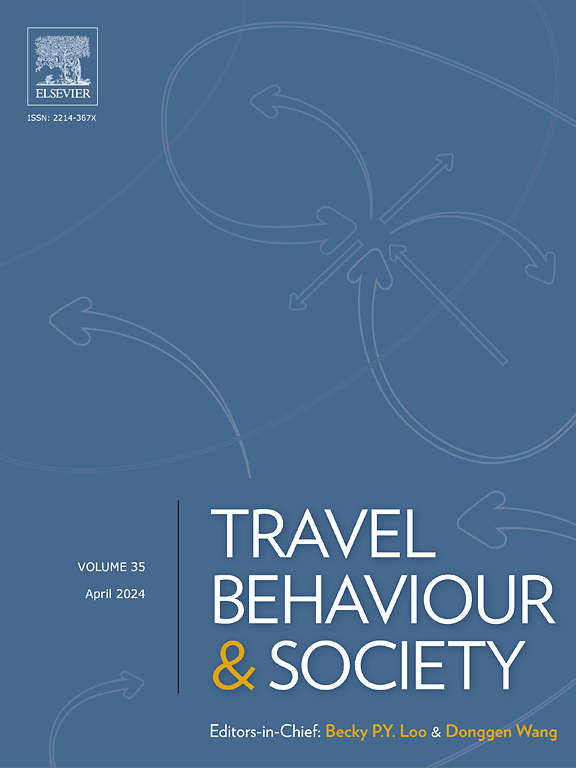Do urban residents support Hyperloop development?
IF 5.1
2区 工程技术
Q1 TRANSPORTATION
引用次数: 0
Abstract
Although several countries are considering Hyperloop transit systems, there has been little research into how urban residents view the risk of Hyperloop development. This study therefore applied perceived risk theory to understand public perceptions of Hyperloop technologies and how perceived risk affects public support for Hyperloop development. The effect of age, gender, and knowledge of Hyperloop trains were studied as moderators of the link between perceived risk and support for Hyperloop development. Six hundred residents in the city of Busan, South Korea, participated in a web panel survey. Using PLS-SEM, the study finds that perceived risk has a substantial negative impact on support for Hyperloop development. Although age and gender are not significant moderators, knowledge of Hyperloop trains is a positive moderator of the relationship between perceived risk and support for Hyperloop development. Knowledge of Hyperloop is also a direct predictor of support for Hyperloop development. This finding has important implications for urban policymakers and transit developers who plan to develop Hyperloop transit services in metropolitan areas.
城市居民支持超级高铁发展吗?
虽然有几个国家正在考虑超级高铁交通系统,但很少有关于城市居民如何看待超级高铁发展风险的研究。因此,本研究应用感知风险理论来了解公众对超级高铁技术的看法,以及感知风险如何影响公众对超级高铁发展的支持。年龄、性别和对超级高铁列车的了解对感知风险和对超级高铁发展的支持之间的联系起到调节作用。韩国釜山市的600名居民参加了一项网络小组调查。使用PLS-SEM,研究发现感知风险对超级高铁开发的支持具有实质性的负面影响。尽管年龄和性别不是显著的调节因素,但对超级高铁列车的了解是感知风险和对超级高铁发展支持之间关系的积极调节因素。对超级高铁的了解也直接预示着对超级高铁开发的支持。这一发现对计划在大都市地区开发超级高铁交通服务的城市决策者和交通开发商具有重要意义。
本文章由计算机程序翻译,如有差异,请以英文原文为准。
求助全文
约1分钟内获得全文
求助全文
来源期刊

Travel Behaviour and Society
TRANSPORTATION-
CiteScore
9.80
自引率
7.70%
发文量
109
期刊介绍:
Travel Behaviour and Society is an interdisciplinary journal publishing high-quality original papers which report leading edge research in theories, methodologies and applications concerning transportation issues and challenges which involve the social and spatial dimensions. In particular, it provides a discussion forum for major research in travel behaviour, transportation infrastructure, transportation and environmental issues, mobility and social sustainability, transportation geographic information systems (TGIS), transportation and quality of life, transportation data collection and analysis, etc.
 求助内容:
求助内容: 应助结果提醒方式:
应助结果提醒方式:


